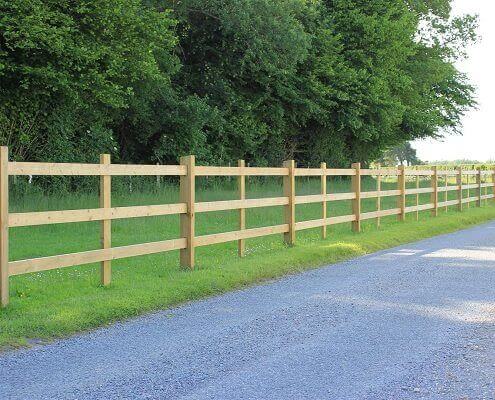13/11/2013 12:00 AM
A horrific accident last weekend, which ended in two horses being killed after escaping from a field in Suffolk, has highlighted the importance of adopting the right physical security measures to protect horses when they are turned out.
The incident in question suggests that the horses may have escaped as a result of a gate being left open, since the paddock incorporated a public right of way. An alternative explanation for the accident may be that there had been an attempt to steal the horses. Upon fleeing the field, tragically both horses were involved in a collision with a motor vehicle.
All horse owners will recognise the undisputed benefits of daily turn out and it is always advisable to try and keep a horse as closely as possible to its natural routine – which would include spending time in the great outdoors. However, a horse’s original ‘natural environment’ would not have required it to be aware of the dangers of fast moving motor vehicles, nor the threat of unwanted human intruders.
All paddock fencing should be monitored to ensure the posts remain firmly fixed and regardless of whether rails / wire / chain mesh or electric tape is employed, a strong and secure boundary line is retained. Harsh weather conditions can easily compromise the efficacy of a perimeter fence, as can the daily onslaught of the rubbing / wear and tear associated with horses so routine maintenance checks are vital. Rotted posts are a common cause for the weakening of a fence so it pays to source a fencing product that has been adequately treated to withstand the challenging outdoor environment all Jacksons Fencing is guaranteed for 25 years against rotting and wood boring pests.
When a public right of way crosses a field where horses are to be grazed, it is advisable to direct pedestrians using the footpath via a kissing gate or stile, to avoid the disastrous consequences of a failure to close a gate.
If horses are being grazed close to a busy road, it is also preferable to create a second layer of fencing which would provide a further level of protection in the event of the first fence failing. It is common practice for example, to use post and rail fencing combined with a run of electric fencing.

All gates should be regularly checked to ensure the hinges and closing mechanisms are fully functional and that all fittings are free from rust. Jacksons’ gates feature fittings which are heavily galvanised as standard, to prevent rusting and deliver a long service life. Similarly, if a chain mesh and timber rail fence is being used, always ensure that the mesh has been galvanised. It is also vital that the apertures for the mesh are small enough to prevent a horse getting a hoof caught – which could result in either an accident and / or the potential to create an escape route.
For more information on equestrian fencing contact Jacksons on 0800 408 2234 or visit our equestrian fencing page